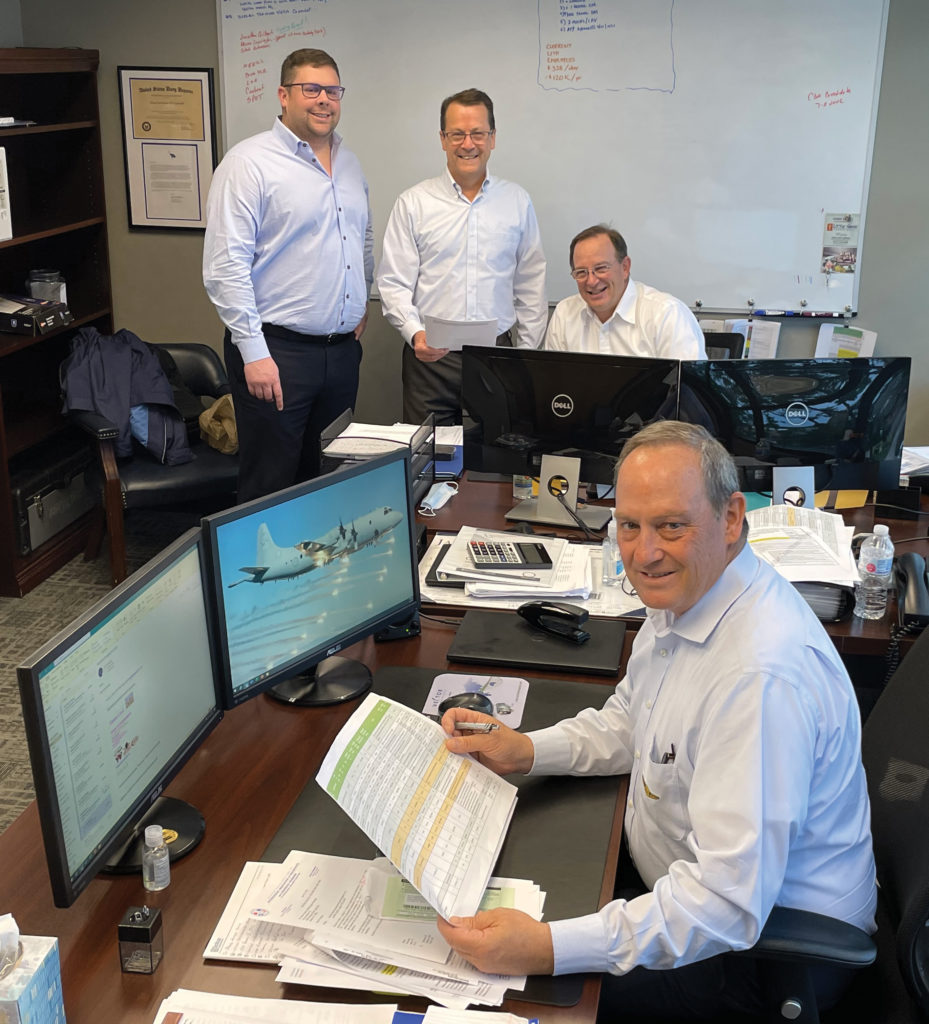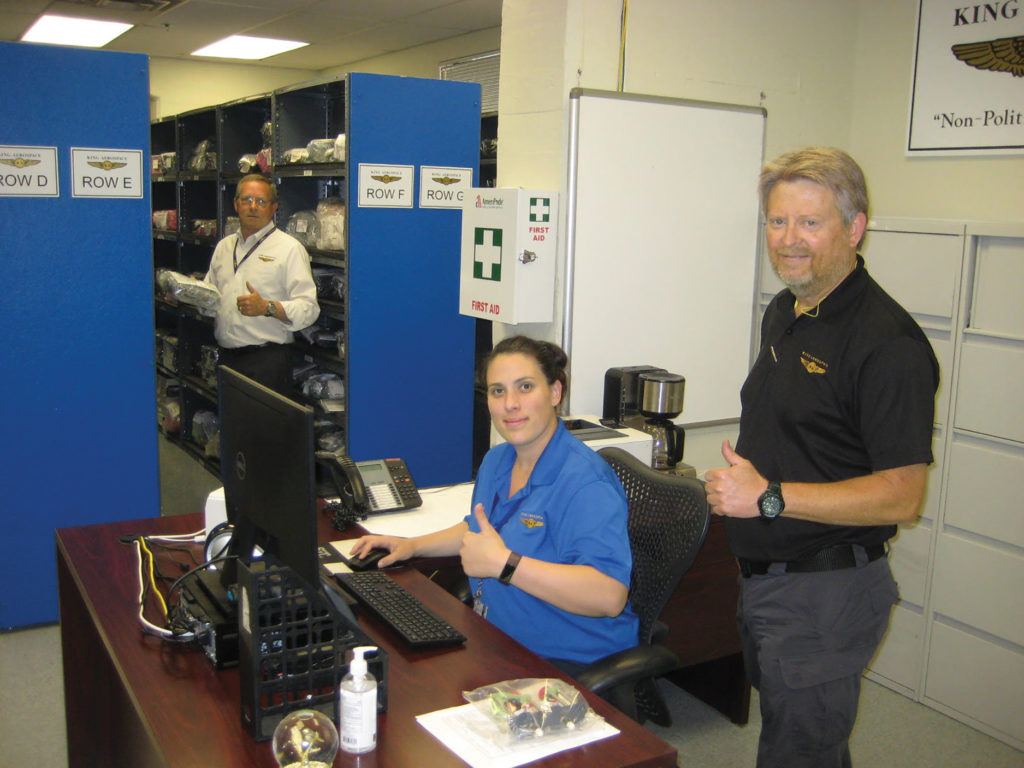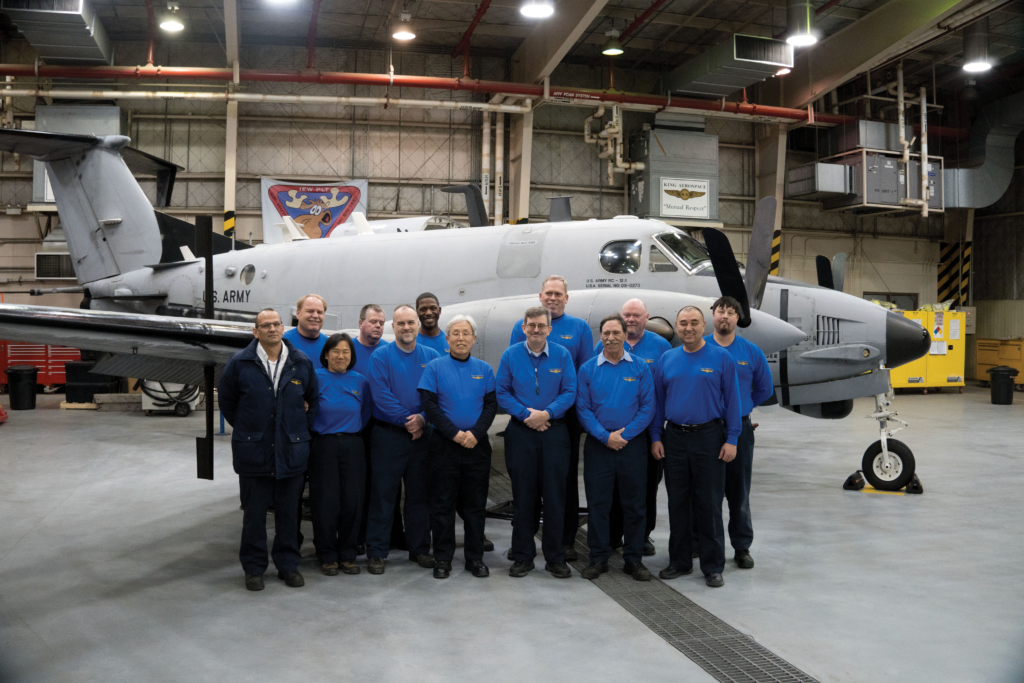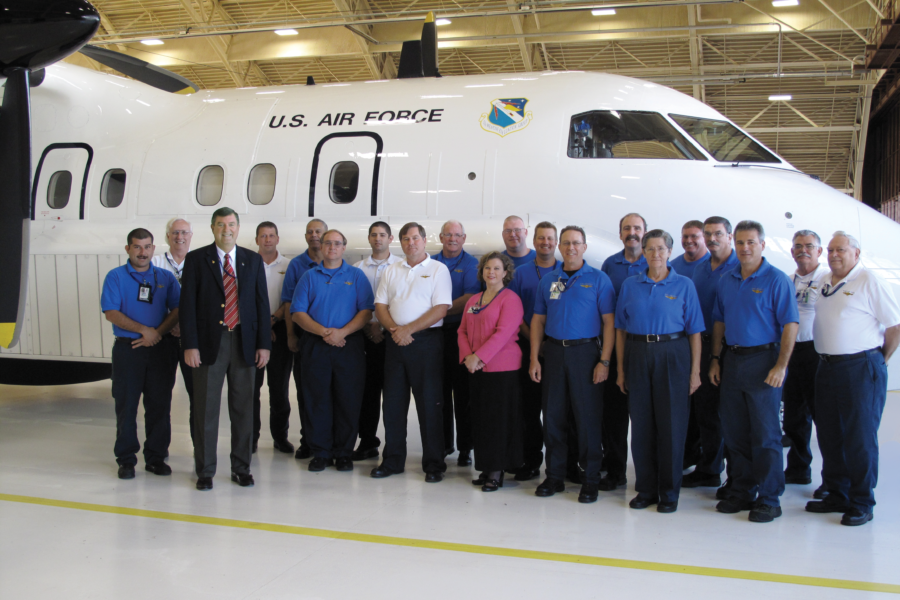Military aviation and technology are ever-changing, from the prevalence of drones to a shift to jets for special mission surveillance, once the province of propeller aircraft.
The creation of the U.S. Space Force in 2019 is, of course, a prime example of the evolving military and the changing defense needs of the nation, reflected in everything from the newest branch honing its mission to this magazine changing its name to the need to add another seat at the table aboard flying command posts.
King Aerospace, based in Addison, Texas, with major facilities in Oklahoma and Arkansas, has been evolving to meet the needs of military, government and business customers since it was founded in 1992.
Whether providing contractor logistics support (CLS) at bases across the country and globe, performing heavy maintenance, modifying and painting aircraft, or serving as a prime contractor or subcontractor, King Aerospace has focused on meeting and responding to the needs of the customer, whether a warfighter or a Boeing Business Jet operator. That focus will be part of the company’s future, no matter where aviation leads it, and is built upon cornerstone principles that include quality in everything (no excuses) and mutual respect.
“The tried and true values of serving the customer remain constant,” said Greg Mitchell, vice president of government services and a Navy aviation veteran. “Aircraft change and technology advances are happening all around us, but personalized responsiveness has been our calling card and that doesn’t change. We’ve built our reputation and our model on that.”
Skills Working Together for the Mission

King Aerospace began with a CLS program, maintaining and helping staff the U.S. Air Force’s E-9A surveillance program out of Tyndall Air Force Base in Florida. Since then, CLS has been a tradition, including the C-9B program for the U.S. Navy and, currently, overseeing the U.S. Army’s SEMA program at over a dozen locations worldwide.
Across three decades, the privately held company has grown its capabilities to include maintenance repair and overhaul (MRO), modifications, paint and other services. Military derivatives of commercial aircraft, from King Airs to Boeing 737s, are a common denominator. That experience allows King Aerospace to leverage skills gained in one sector – like Boeing Business Jets – when working on military or government agency versions of the same aircraft, Boeing 737s. Similarly, the companies that make up King Aerospace – KAI for military, KACC for commercial customers and KACC Arkansas for widebody government special mission aircraft – support one another as needed.
“A lot of our CLS competitors don’t have the in-house capability for MRO services,” Mitchell says. “You truly do get one-stop shopping with us.”
“We’re not just a CLS company. We’re MRO facility. We’re a military modifications company,” said Keith Weaver, vice president-business development. “We have all these links and connections, and every King Aerospace company complements the others.”

Able to Handle What’s Next
With a deep bench of capabilities and a focus on the mission, King Aerospace and its leaders see a future rich in opportunities to continue serving and responding to the needs of military and government.
That could include unmanned aircraft, helicopters, expanded engineering services, a wider variety of CLS, basically anything involving aircraft and supporting the military.
“Our personnel have pretty varied backgrounds in different aircraft platforms that range from widebody aircraft to rotary wing aircraft,” says Mitchell, mentioning his own background in helicopters. “The fundamentals are the same as to how you take care of any aircraft from a program management standpoint.”
“Working on a drone is no different than working on an airplane. It’s just doesn’t have a pilot,” says Steve Sawyer, general manager of the company’s Ardmore, Oklahoma, facility, a Navy veteran and former manager of the SEMA program. “Somebody has to fly them and maintain them, so there’s still an infrastructure that can never be marginalized.”

“There are still bad guys. There are still conflicts. Whatever shape and form that takes in aircraft, they still have to be supported,” Sawyer says.
“We do an incredible job at adapting to an environment where the government says, ‘We need to go here and do this.’ We figure it out. That’s what we do,” Sawyer says.
With over 400 employees, King Aerospace is not a small company but between its size and streamlined management, it’s responsive in ways that many competitors are not.
“A customer can pick up the phone and get a hold of real people who can solve their problems instead of it being run through layers and layers,” Mitchell says.
It’s an approach valued by top leadership – its owners – as well as customers.
“We’re flexible; we’re rapid to respond,” says Jarid King, president. “Decisions take moments, not days, weeks or months. That’s what sets us apart.”
